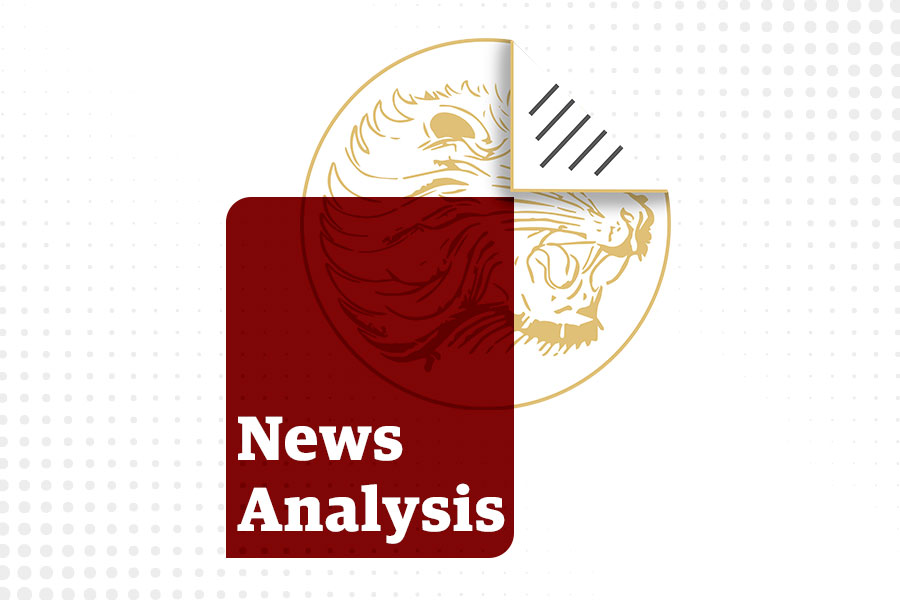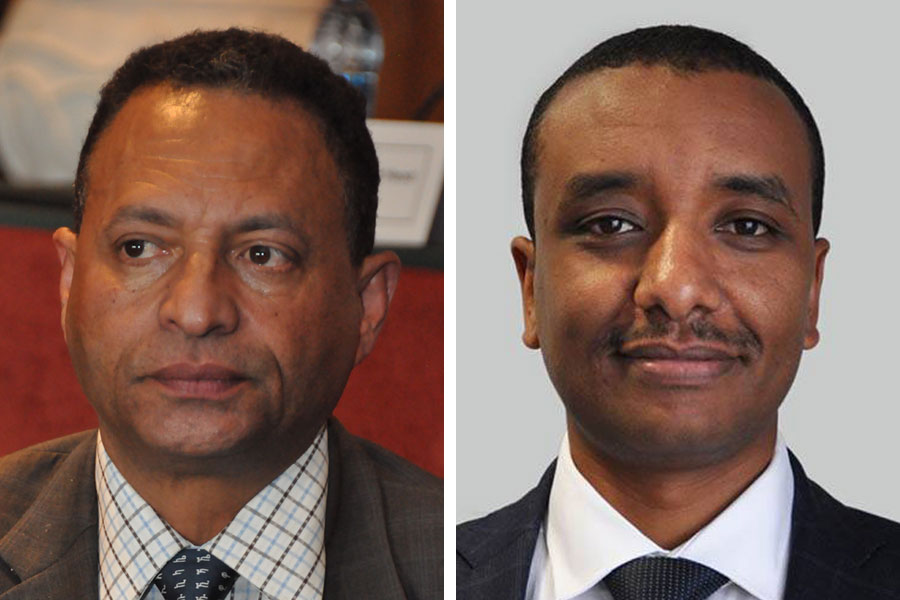
News Analysis | Jul 07,2024
Jul 21 , 2024
By AKSAH ITALO ( FORTUNE STAFF WRITER )
Commercial banks are now permitted to acquire equity shares in capital market service providers, with the exclusion of credit rating agencies, subject to prior approval from the central bank. They can also invest in the real estate sector and hold equity shares in a single insurance company.
The shift in the regulatory environment comes from a new directive issued by Central Bank Governor Mamo Mehiretu, which became effective on July 19, 2024. It is a critical component of the Governor's broader agenda to reform the financial sector, targeting risk management and capital market development as well as compelling banks to focus on their core banking functions.
The directive limits banks' investment activities, concentrating on the risks associated with their diversified business activities. By setting boundaries on where and how banks can invest, Governor Mamo seeks to prevent potential overexposure to volatile sectors, including the real estate market, and ensure that banks remain focused on traditional banking operations, such as debt financing and interest-free banking.
However, the directive also imposes strict prohibitions on certain activities. Banks are explicitly barred from engaging directly in insurance businesses, serving as capital market service providers, engaging in non-banking businesses, or holding equity shares in credit rating agencies.
“These restrictions are designed to maintain a clear separation between banking and non-banking financial activities,” said a macroeconomist familiar with the works of the central bank. “Reducing conflicts of interest and ensuring that banks' primary focus remains on core banking operations.”
The directive caps aggregate equity investment in non-banking businesses, including insurance firms and capital market service providers, at 15pc of a bank's total capital. Banks are restricted from investing more than 10pc of their total capital in real estate acquisition and development, except for their business premises, without prior approval from the National Bank of Ethiopia (NBE).
According to the macroeconomic expert, the central bank sees these limits as crucial for preventing excessive risk-taking and ensuring that banks maintain sufficient capital buffers to absorb potential losses. The directive also requires banks to engage in interest-free banking, complying with a directive issued a few months ago governing “large exposures to counterparty or group of connected counterparties,” treating all asset exposures related to interest-free banking activities as exposures.
The provision dictates that interest-free banking activities are conducted within risk management rules, safeguarding the banking sector's stability.
Banks should report any equity investments, except those in financial infrastructure and businesses related to interest-free banking services, to the NBE within 30 days of the investment decision. They are also required to develop comprehensive investment policies covering allowable investments, classification criteria, portfolio diversification, structure, reporting procedures, and stress testing.
A senior banker in the industry views equity investment as a strategic tool to propel the development of the banking industry and capital market, ultimately stimulating investment. He believed the investment cap might restrict new banks' participation in the capital market but feels established medium and large banks will be less affected.
"This approach promotes prudent investment practices," he said.
Established in 2009, Berhan Bank is cautiously optimistic about the upcoming capital market, according to Desta Bekalo, the vice president for Strategy & Marketing. He recognises the potential benefits of the capital market, echoing the sentiments of industry leaders. However, he called for prudence before Berhan Bank fully engages in the capital market. The cautious approach likely stems from Berhan Bank's current financial standing.
While Berhan Bank boasts substantial growth since its incorporation and a net profit of 558 million Br in 2022/23 operational year, it falls short of the central bank's capital threshold by 1.65 billion Br.
"We're eyeing the trends," Desta told Fortune.
The directive does provide certain exceptions to its prudential limits and restrictions. Investments funded partly or fully by restricted investment accounts are exempt, as are investments made before the directive's effective date or those made by banks transformed from microfinance institutions. Dealings with the National Bank or federal government securities such as T-bills, or any other securities fully backed by the federal government are not subject to the directive's limits, provided the purchase prices do not exceed their face value.
Ethiopia's long-awaited capital market is nearing its launch, marking a considerable step towards a more diversified financial space. The initiative began nearly five years ago with a dedicated project team within the central bank, eventually branching out into an independent regulatory body, the Ethiopian Capital Market Authority (ECMA). ECMA's Director General, Brook Taye (PhD), exudes confidence and optimism about the upcoming market. He applauded the transformative measures the National Bank of Ethiopia (NBE) implemented, specifically empowering domestic banks to be major players.
"We're ready to issue licenses to qualifying banks," he said.
Industry operators see Governor Mamo's reform agenda as part of a broader effort to modernise the financial sector and adopt international practices. By introducing stringent investment limits and encouraging banks to focus on their core functions, the Governor hopes to see financial stability, promote sustainable economic growth, and build a more resilient banking system.
Banking expert Eshetu Fantaye has weighed in on the ongoing debate of capital market investment limits for banks. He recognises the potential advantages for businesses seeking capital through the market. However, he cautioned against potential pitfalls due to a lack of expertise and robust risk management practices. He characterised the current cap on banks' ability to lend as a "risk-avoiding strategy" by the authorities.
"While limitations may reflect concerns about banks' ability to manage long-term investments," Eshetu observed, "stronger risk management models are crucial for steering the capital market."
Governor Mamo's directive represents a calculated move to steer Ethiopia's banking industry towards a more regulated and risk-averse path, ensuring that banks do not lose sight of their fundamental banking functions amid the allure of potentially lucrative non-banking investments. According to industry observers, the approach is meant to promote a stable financial environment conducive to growth and innovation within the banking industry while protecting it from the inherent risks of over-diversification.
PUBLISHED ON
Jul 21,2024 [ VOL
25 , NO
1264]

News Analysis | Jul 07,2024

Commentaries | Jan 26,2019

Radar | Jan 21,2023

Fortune News | Aug 07,2021

Fortune News | Oct 05,2025

Fortune News | Jul 11,2021

Fortune News | Jun 20,2020

Fortune News | Jul 29,2023

Fortune News | Nov 02,2019

Viewpoints | May 11,2019

Dec 22 , 2024 . By TIZITA SHEWAFERAW
Charged with transforming colossal state-owned enterprises into modern and competitiv...

Aug 18 , 2024 . By AKSAH ITALO
Although predictable Yonas Zerihun's job in the ride-hailing service is not immune to...

Jul 28 , 2024 . By TIZITA SHEWAFERAW
Unhabitual, perhaps too many, Samuel Gebreyohannes, 38, used to occasionally enjoy a couple of beers at breakfast. However, he recently swit...

Jul 13 , 2024 . By AKSAH ITALO
Investors who rely on tractors, trucks, and field vehicles for commuting, transporting commodities, and f...

Oct 11 , 2025
Ladislas Farago, a roving Associated Press (AP) correspondent, arrived in Ethiopia in...

Oct 4 , 2025
Eyob Tekalegn (PhD) had been in the Governor's chair for only weeks when, on Septembe...

Sep 27 , 2025
Four years into an experiment with “shock therapy” in education, the national moo...

Sep 20 , 2025
Getachew Reda's return to the national stage was always going to stir attention. Once...